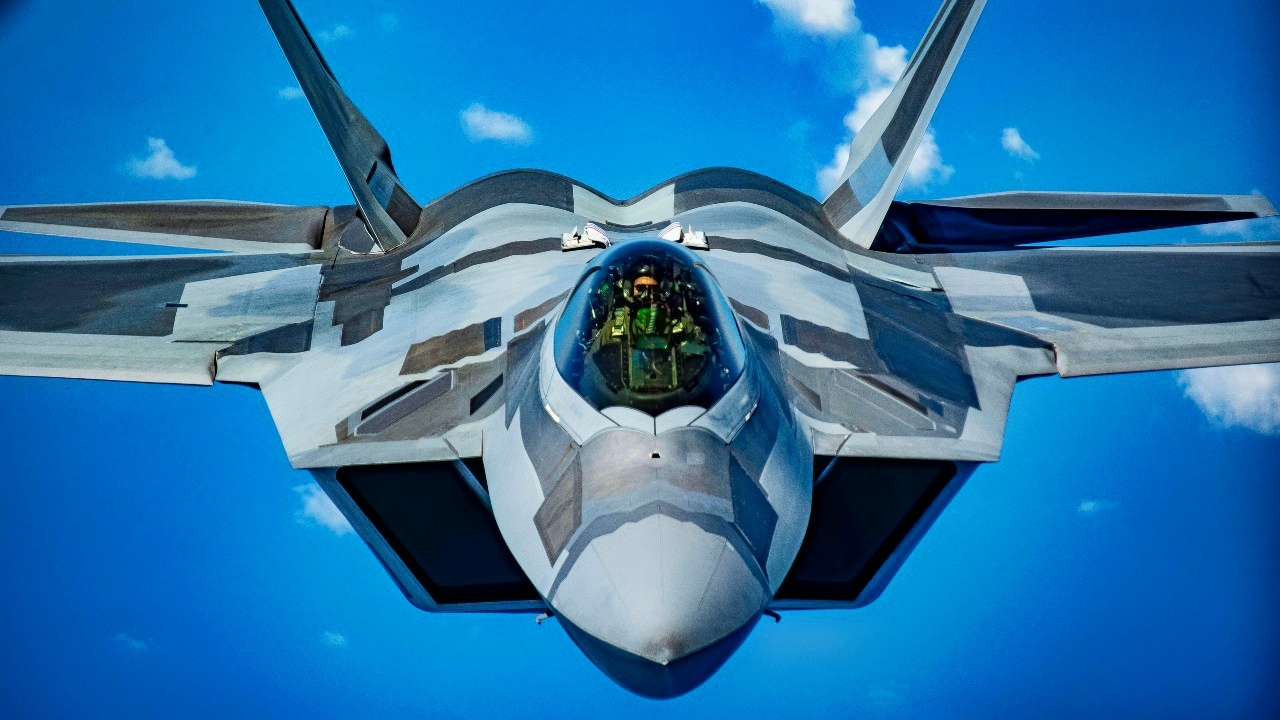World
F-22 Raptor Defeated? How a French Rafale ‘Killed’ the World’s Top Fighter

Summary and Key Points: The F-22 Raptor, known as one of the most advanced fifth-generation fighters, combines stealth, supermaneuverability, supercruise, and sensor fusion. However, it isn’t invincible.
-In 2009, during a training exercise in the UAE, a French Rafale fighter was captured on video in a position implying it had “defeated” an F-22 in a mock dogfight.
-This incident highlighted the importance of pilot skill over technological superiority.
-Despite occasional defeats, the F-22 remains a powerhouse, boasting a small radar cross-section, thrust-vectoring engines, and flight characteristics that surpass even newer jets like the F-35.
The F-22 Raptor: Not Invincible? Inside the Mock Dogfight With a French Rafale
The F-22 Raptor is arguably the most revered fighter platform across the globe.
When the first ever fifth-generation jet took to the skies in the early 2000s, the future of aerial combat would be forever changed.
But, of course, that does not mean the F-22 can’t be defeated.
Meet the F-22
The Raptor represented the first fighter platform to combine stealth, supermaneuverability, supercruise, and sensor fusion in a singular airframe. While these capabilities gave the F-22 its legendary status among aviation buffs and military experts alike, the platform is not completely impervious.
In fact, a French fighter pilot once “killed” an F-22 jet in mock combat. While this incident was not unprecedented, the French Rafale’s ability to shoot down America’s top-of-the-line fighter at the time was very significant.
The incident: what happened?
Back in 2009, a squadron of F-22 Raptors from the Air Force’s 1st Fighter Wing in Virginia flew to the United Arab Emirates to complete a training exercise alongside French Rafale fighters, UAE Mirages, and British Typhoon jets. During the collaborative drills, fighters from each nation went head-to-head against each other in various training evolutions.
Roughly one month following the conclusion of the exercise, the French Ministry of Defense published footage depicting a Raptor in a disadvantageous dogfighting position captured by a Rafale’s forward-facing camera. The F-22’s vulnerable position implied that the French fighter had won at least that round of performative dogfighting with the American jet.
Despite the video’s release, the U.S. denied that one of its planes had been defeated by a Rafale. However, the pilots admitted that a single F-22 was taken out by a UAE Mirage during the exercises.
Experts who have viewed the Rafale vs. F-22 video acknowledge that the French pilot had pushed his airframe to its limits, even reaching 9Gs at one point during the dogfighting exchange. The Rafale’s victory over the Raptor as shown in the video further exemplifies the point that sometimes the pilot is more important than the airframe.
While the Raptor is technologically superior to the Rafale, pilots can still make mistakes.
A few years prior to the Rafale incident, another F-22 Raptor was reportedly defeated by an F-16 Fighting Falcon during a military drill. Additionally, a Navy Growler jet repeated the feat at a different air drill in early 2009.
What makes the F-22 Raptor a powerhouse in the skies?
The Lockheed Martin F-22 Raptor continues to possess unique attributes that even newer fifth-generation fighters like the F-35 Joint Strike Fighter are not equipped with.
Featuring a small radar cross-section and twin thrust-vectoring engines, the Raptor hosts supermaneuverable flight characteristics that help keep it undetectable to foreign airframes.
As detailed by Military Watch Magazine, the Raptor features also advantages over the F-35, including “higher operational altitude and speed, reaching Mach 2.25 and 20km high compared to the F-35’s below average speeds of Mach 1.6 and altitude ceiling of under 16km.
This makes the F-35 by far the slowest modern fighter jet in the world with among the lowest altitude ceiling. Despite being 30 percent heavier, the F-22 remains far more maneuverable with its two F119 engines giving a respectable thrust/weight ratio of 1.08.”
About the Author: Maya Carlin
Maya Carlin is an analyst with the Center for Security Policy and a former Anna Sobol Levy Fellow at IDC Herzliya in Israel. She has by-lines in many publications, including The National Interest, Jerusalem Post, and Times of Israel. You can follow her on Twitter: @MayaCarlin.
All images are Creative Commons.










